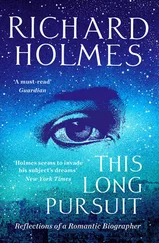We were now heading for the Trappist monastery of Notre Dame des Neiges. Stevenson, I supposed, had a conscience to examine. Our path went eastwards, over high moorland beyond the shelter of the Forêt de Mercoire, to Luc; then turned south again down a remote valley of the Allier towards La Bastide, where the Trappists lived on a thickly wooded hillside, in their ancient vows of poverty, chastity, obedience—and silence. Lay people from the outside would occasionally be granted permission to stay there “on retreat”, sharing the monks’ harsh routine, meditating and praying, and taking stock of their lives. For a lapsed Calvinist like Stevenson it was a not entirely foreign idea; for a lapsed Catholic like me it was only too familiar. A brief visit seemed unavoidable.
This leg of the journey took two days, broken by a night at Luc.
Stevenson slept at the comfortable auberge , after his Fouzilhac adventure; while I crossed the river and camped in a fragrant barn full of new-mown hay. I had again been caught by a storm crossing the moors between Cheylard and Luc, and I was glad of a roof-beam and the friendly, reassuring sound of munching cattle.
I had another dream. My path was an endless track of grey stone chippings that mounted through mauve heather to a bare sky. It seemed deserted but was full of unknown presences and pine stumps, as far as the eye could see. All were lightning-struck, a dead and ghastly white. A storm approached me from behind, trailing fingers of rain. Thunder booms set me running and gasping as my pack grew heavier and heavier. Someone was coming, chasing me, and prongs of lightning snapped down on the hill—to my right, to my left, then directly overhead. My heart beat with fear, and I ran and ran over the lonely moor, and my hair turned snow-white. I sat up and it was the whiteness of dawn. The cattle were chomping and the hay smelt sweet.
In the morning a farmer gave me a large bowl of coffee and tartines , and I was sick. I went down to the Allier, and bathed from a rock, and scrubbed some clothes. A fisherman, carrying a long cane rod, walked by with a sideways glance, curious. Long after he was gone I could see the gleaming tip of the rod moving on down the valley in the direction of La Bastide, like the antenna of some predatory insect. I felt like another species myself, a sort of animal cut off from the human world. I lay on the rock all morning in the hot sun, listening to the call of peewits and the sounds of the river.
I found that Stevenson wrote that day in his journal:
Why anyone should desire to go to Cheylard or to Luc is more than my much inventing spirit can embrace. For my part, I travel not to go anywhere, but to go; I travel for travel’s sake. And to write about it afterwards, if only the public will be so condescending as to read. But the great affair is to move; to feel the needs and hitches of life a little more nearly; to get down off this feather bed of civilisation, and to find the globe granite underfoot and strewn with cutting flints.
It is one of his most memorable formulations, and I learnt it by heart. At night I would mumble it to myself, almost like a prayer, in the solitariness of my sleeping-bag. Again, I took it quite literally, on trust. Or rather, I was compelled to take it—this, I felt, is what I had to do; though if anyone had asked me why I could not have explained. The fact that Stevenson was also making something of a profession of his bohemian wanderings, and deliberately searching for picturesque copy, did not occur to me at first. (He did not use that sentence about his reading public in the published version of his Travels; it revealed his hand too clearly.) But I now think that my critical innocence allowed me to learn other things, far more important, about the personal life that is hidden in, and below, the printed page. To learn by heart has more than one meaning.
On Thursday, 26 September Stevenson turned east again away from the Allier, climbed along the high forested ridge above La Bastide, and with much misgivings came down with Modestine to the gateway of Our Lady of the Snows. He stayed there for one night and most of two days. I came to think of this as one of his most complicated human encounters. It threw into relief for me much of his Scottish inheritance and upbringing, and eventually revealed some of the deepest preoccupations of his journey.
The faintly jocular tone in his journal was, I was sure from the start, a disguise. I felt the same real twinges myself.
Here I struck left, and pursued my way, driving my secular donkey before me and creaking in my secular boots and gaiters, towards the asylum of silence. I had not gone very far ‘ere the wind brought to me the clanging of a bell; and somehow, I can scarce tell why, my heart sank within me at the sound. I have rarely approached anything with more hearty terror than the convent of Our Lady of the Snows; this is what it is to have had a Protestant education.
His first sight of the monk Father Apollinaris planting out a long avenue of birch trees, in his flapping robed habit, immediately touched off childhood memories. It reminded him of the old prints of the medieval friars in the Edinburgh antique shops. The white gown, the black pointed hood, the half-revealed yellow pate, all stirred forgotten terrors. Moreover, what was the etiquette for dealing with the Trappist vow of silence? “I doffed my fur cap to him, with a faraway, superstitious reverence.”
He was surprised to find, however, that a foreign traveller was most kindly and indeed volubly greeted. Once it was established that he was not a pedlar “but a literary man” he was regaled with a liqueur, assigned a whitewashed cell in the guest wing, and bidden to attend the community services and meals at will. Father Apollinaris asked Stevenson if he were a Christian, “and when he found that I was not, or not after his way, he glossed over it with great goodwill”. Later, an Irish brother, when he heard that the guest was a Protestant, “only patted me on the shoulder and said, ‘You must be a Catholic and come to heaven’”.
Stevenson read the notice pinned over the table in his cell, for those attending official retreats, with a mixture of amusement and gravity. “What services they were to hear, when they were to tell their beads, or meditate, when they were to rise or go to rest. At the foot was a notable N.B.: ‘Le temps libre est employé à l’examen de conscience, à la confession, à faire de bonnes résolutions, etc.’” But he was decidedly impressed by the severe regime of the Trappists themselves: rising at two in the morning to sing the office of prime in the choir, then regulating the entire day between work duties and prayer accordingly as the bell rang, maintaining a sparse vegetarian diet and never speaking—except by special dispensation to strangers like himself.
At the same time La Trappe had its measure of worldly good sense. Every monk was encouraged, indeed required, to work at a hobby of his own choice. Stevenson found monks binding books, baking bread, developing photographs, keeping rabbits or peacefully cultivating potato patches. The monastery library was open to all, with a collection that included not only the sacred texts and holy fathers of the Church but Chateaubriand, Molière and the Odes et Ballades of Victor Hugo. “Let me whisper in addition what I only heard by way of a report, a great collection in another room, under orthodox lock and key, where Voltaire and Walter Scott, in God knows how many volumes, led the dance.”
That night, in the conduct of the kind old Irish brother, he attended the service of Compline in the candle-lit choir, greatly moved by the stern simplicity of the plain, white-painted chapel, and the “manly singing” of the cowled figures, alternately standing and bowed deep in prayer. “These things have a flavour and significance that cannot be rendered in words. Only to the faithful can this be made clear; or to one like myself who is faithful all the world over and finds no form of worship silly or distasteful.”
Читать дальше












